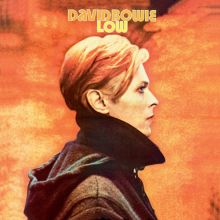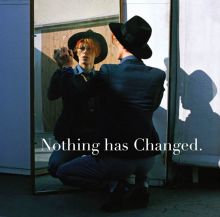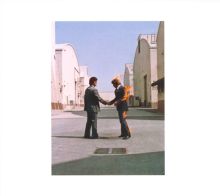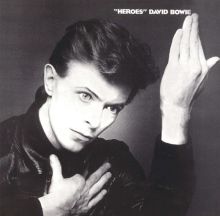Rando Ken's Album Reviews
All Album ReviewsThe album Acting Very Strange needs very little introduction or listening to assess the listener's mind. Simply, what was Mike Rutherford thinking!?
Compared to The Fugitive, Rutherford's Genesis bandmate Tony Banks's responsive solo album, AVS has some better songwriting with Rutherford sharing the writing hand with some other writers. The musicians on this album are more distinguishable than on Banks's album, such as the almighty Stewart Copeland! Copeland notwithstanding, Rutherford and whatever musicians he recruited could not bring this record to the heights of Collins', at least in the U.S, but maybe it was meant to be. Rutherford's singing is even more unlistenable than Banks' and I can only stand to raise the audio bar up on Hideaway. The songs Maxine and Halfway There could have been catchy pop hits had Rutherford not sung them. The guitar riff on the former sounds like it belongs in a horror movie. I may be too harsh since I've not listened to the full album but I cannot bear it! Just give Maxine, Halfway There, and Hideaway a listen to get the feeling and then go back to Banks or Collins or Genesis. This is just Rutherford, a good guitarist, an alright songwriter, and a terrible singer.
Compared to The Fugitive, Rutherford's Genesis bandmate Tony Banks's responsive solo album, AVS has some better songwriting with Rutherford sharing the writing hand with some other writers. The musicians on this album are more distinguishable than on Banks's album, such as the almighty Stewart Copeland! Copeland notwithstanding, Rutherford and whatever musicians he recruited could not bring this record to the heights of Collins', at least in the U.S, but maybe it was meant to be. Rutherford's singing is even more unlistenable than Banks' and I can only stand to raise the audio bar up on Hideaway. The songs Maxine and Halfway There could have been catchy pop hits had Rutherford not sung them. The guitar riff on the former sounds like it belongs in a horror movie. I may be too harsh since I've not listened to the full album but I cannot bear it! Just give Maxine, Halfway There, and Hideaway a listen to get the feeling and then go back to Banks or Collins or Genesis. This is just Rutherford, a good guitarist, an alright songwriter, and a terrible singer.
Was this review helpful?
I might be insane, but I give this and those other albums FIVE, with this a need-to-listen. However, this album isn't the best for those who don't like sinister music, as this album exemplifies with White Hammer or After The Flood, or melancholic tunes like Refugees. Besides that, it's a great record
TLWCDIWTEO, a h*** of a title, is VdGG's first album the same way that Trespass was... I should probably not compare VdGG to that band. If Trespass sounded like Foxtrot, my favorite record from that band, it would sound like THIS.
Refugees, arguably the best known VdGG track, is a fantastic song that really captures the moment VdGG were great. White Hammer, the next track, is a brilliant song about The Witch Hammer and a treat to any prog rock fan desiring something about witchcraft. After the Flood is a frightful ending to the album that concludes the band's greatness. The other songs, Darkness, Whatever Happened... and Out of my Book all exemplified the skill of the musicians, with the last being one of my favorites off the record.
TLWCDIWTEO, a h*** of a title, is VdGG's first album the same way that Trespass was... I should probably not compare VdGG to that band. If Trespass sounded like Foxtrot, my favorite record from that band, it would sound like THIS.
Refugees, arguably the best known VdGG track, is a fantastic song that really captures the moment VdGG were great. White Hammer, the next track, is a brilliant song about The Witch Hammer and a treat to any prog rock fan desiring something about witchcraft. After the Flood is a frightful ending to the album that concludes the band's greatness. The other songs, Darkness, Whatever Happened... and Out of my Book all exemplified the skill of the musicians, with the last being one of my favorites off the record.
Was this review helpful?
Rando Ken's Song Reviews
All Song Reviews
On The Least We Can Do..., Out Of My Book stands out as a lush respite, following the mystical considerations of Whatever Would Robert Have Said and preceding the whole torrent that is the apocalyptic closer After The Flood. It also stands out as being the one track on the album that Peter Hammill co-wrote, rather than wrote solo as he would most of Van der Graaf Generator's songs and his own. He wrote it with David Jackson, who also deviated by performing only flutes on this song rather than saxophone as he does throughout the album. As much as Hammill sings marvelously crafted lyrics like "running along in sunlight meadows, your eyes were never more than half closed," Jackson provides excellent instrumental accompaniment matching in beauty.
The song's theme at its simplest concerns unrequited love, an idea that would permeate Hammill's output for years to come, including many of his best songs and albums. But in presenting it in such a lighthearted way, as though to make it into a real love song, Out Of My Book turns out to be not only the 'happiest' song on the album, but also arguably that of the whole of Van der Graaf Generator's classic output, much of it directs itself thematically in a dark and mature direction. It's hard to classify the vocal sections as 'verse' and 'chorus', although the general ABABCAB structure of the music suggests such a structure to the song. The whole song has a very warm, folksy feel, with the B sections being comparable to a pastoral dance. The C section gives way to a brilliant mostly instrumental section, continuing the festive excitement of the preceding B section, while broken only by Hammill's complaint at the relationship's unfolding, "How am I supposed to seem when we hit another problem and the answers are torn from my book?". The song retains its connection with other Hammill songs of a similar theme more or less by ending unresolved, with Hammill stating "How can I be sure?"
Personally, this is my most played song from the band, one of if not the single song I have heard the most, and therefore stands close to being my favorite song ever. As soon as I first heard the fluttering flute and organ unison that defines the B section, I knew that Van der Graaf Generator would be my favorite band as they are to this day.
The song's theme at its simplest concerns unrequited love, an idea that would permeate Hammill's output for years to come, including many of his best songs and albums. But in presenting it in such a lighthearted way, as though to make it into a real love song, Out Of My Book turns out to be not only the 'happiest' song on the album, but also arguably that of the whole of Van der Graaf Generator's classic output, much of it directs itself thematically in a dark and mature direction. It's hard to classify the vocal sections as 'verse' and 'chorus', although the general ABABCAB structure of the music suggests such a structure to the song. The whole song has a very warm, folksy feel, with the B sections being comparable to a pastoral dance. The C section gives way to a brilliant mostly instrumental section, continuing the festive excitement of the preceding B section, while broken only by Hammill's complaint at the relationship's unfolding, "How am I supposed to seem when we hit another problem and the answers are torn from my book?". The song retains its connection with other Hammill songs of a similar theme more or less by ending unresolved, with Hammill stating "How can I be sure?"
Personally, this is my most played song from the band, one of if not the single song I have heard the most, and therefore stands close to being my favorite song ever. As soon as I first heard the fluttering flute and organ unison that defines the B section, I knew that Van der Graaf Generator would be my favorite band as they are to this day.
Was this review helpful?
For being one of his least regarded albums, Four Pails is one of the takeaways of Hammill's Skin. Less surprising it is then that the song has been performed live by him on occasion to this day. Like many of his songs, leading back to the first VdGG single People You Were Going To, Hammill did not in fact write the song. It was instead written by VdGG's co-founder Judge Smith and his friend Max Hutchinson. Given Hutchinson worked with Smith before VdGG had even formed, this song for all we know could date back to the 1960s. This is also reasonable given the studio resurrection of Sci-Finance, featured on VdGG's Vital in 1978, on Hammill's next album after ten years. While many of Hammill's covers of Judge Smith are darkly humorous, such as People You Were Going To and Institute Of Mental Health Burning, Four Pails goes even deeper, being one of Hammill's most confrontational of existentialism.
The first part of the song directly defines atheistic ideology, virtually the belief that there is no afterlife and that life is purely the result of natural processes. "It's a sad philosophy, but better sad than wrong." The second part though expands and provides a counterpoint via the theme of lost love, a concept identifiable with Hammill throughout his career. For how strongly the narrator states the beliefs at first, he finds himself in question due to this relationship and the hope and possibility of a reconciliation beyond life. "Once I would have answered clearly, now I only think I'm nearly sure" ends the song with the reconciliation of these two aspects yet unfulfilled.
The hardly origin production that defines Skin is still present here with overdubbed backing vocals, if with a lesser degree and especially compared with In A Foreign Town. They are still put into haunting use, particularly with the thematic conclusion of the first part "Face the truth instead; when you're dead you're dead; when you're gone, you're gone." I could also think of the song as an alteration of the structure of People You Were Going To, going from a metaphor of infidelity with misfortune, as an inability to reconcile lost love with atheism, which may better indicate the song's origins.
The first part of the song directly defines atheistic ideology, virtually the belief that there is no afterlife and that life is purely the result of natural processes. "It's a sad philosophy, but better sad than wrong." The second part though expands and provides a counterpoint via the theme of lost love, a concept identifiable with Hammill throughout his career. For how strongly the narrator states the beliefs at first, he finds himself in question due to this relationship and the hope and possibility of a reconciliation beyond life. "Once I would have answered clearly, now I only think I'm nearly sure" ends the song with the reconciliation of these two aspects yet unfulfilled.
The hardly origin production that defines Skin is still present here with overdubbed backing vocals, if with a lesser degree and especially compared with In A Foreign Town. They are still put into haunting use, particularly with the thematic conclusion of the first part "Face the truth instead; when you're dead you're dead; when you're gone, you're gone." I could also think of the song as an alteration of the structure of People You Were Going To, going from a metaphor of infidelity with misfortune, as an inability to reconcile lost love with atheism, which may better indicate the song's origins.
Was this review helpful?








